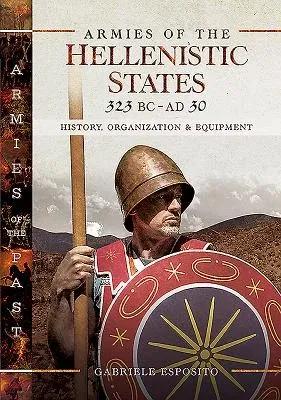Gabriele Esposito
(Author)Armies of the Hellenistic States 323 BC - AD 30: History, Organization and EquipmentHardcover, 16 September 2019

Qty
1
Turbo
Ships in 2 - 3 days
In Stock
Free Delivery
Cash on Delivery
15 Days
Free Returns
Secure Checkout

Part of Series
Armies of the Past
Print Length
168 pages
Language
English
Publisher
Pen & Sword Military
Date Published
16 Sep 2019
ISBN-10
1526730294
ISBN-13
9781526730299
Description
Product Details
Author:
Book Format:
Hardcover
Country of Origin:
GB
Date Published:
16 September 2019
Dimensions:
24.89 x
17.78 x
1.78 cm
ISBN-10:
1526730294
ISBN-13:
9781526730299
Language:
English
Pages:
168
Publisher:
Series:
Weight:
725.75 gm